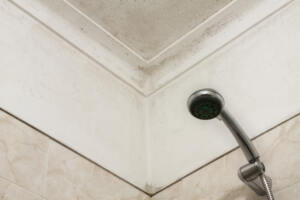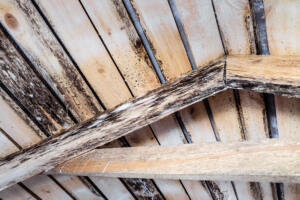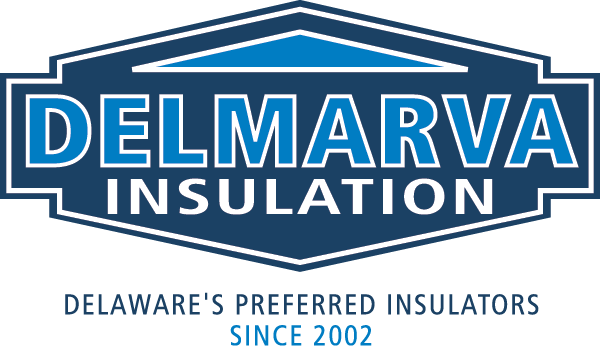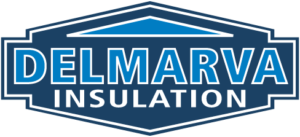Delaware’s humid climate creates the perfect breeding ground for an unwelcome houseguest: mold. With its ability to grow anywhere there’s moisture, mold can quickly become a serious problem in your home. Not only can it damage your property, but exposure to mold spores can also pose significant health risks, affect indoor air quality, and be a complicated problem to fix. This guide will equip you with essential knowledge to prevent mold growth and keep your Delaware home safe and healthy.
1. Control Moisture: The Key to Mold Prevention in Delaware
 The most effective way to prevent mold issues is to control moisture in your home. Because mold thrives in damp environments, reducing humidity is crucial. Here are some steps to prevent mold and control moisture:
The most effective way to prevent mold issues is to control moisture in your home. Because mold thrives in damp environments, reducing humidity is crucial. Here are some steps to prevent mold and control moisture:
- Use a dehumidifier in your damp basement or crawl space to maintain optimal humidity levels. The EPA recommends keeping your indoor relative humidity (RH) below 60% — ideally between 30-50%.
- Fix leaks promptly in your roof, pipes, and around windows to avoid water damage. Prolonged leaks are not kind to your home.
- Ensure your bathrooms and kitchen are properly ventilated to reduce condensation.
- Direct water away from your foundation using gutters and downspouts.
- Air seal your home to help keep moist outside air out of your home. It’s important to note that an air sealed home needs a proper ventilation system to help move out any damp air that could contribute to mold issues.
By addressing these moisture sources, you’ll create an environment where mold can’t easily take hold.
2. Know Your Mold Hotspots: Targeted Prevention in Delaware Homes
Certain areas in your Delaware home are particularly prone to mold problems. We’ve already touched on some of them above. Let’s explore those and other specific hotspots where mold can grow and how to protect them:
Basements
Mold can easily grow on your basement rim joists and box sills, where moist outside air can infiltrate your home and allow mold to form. Insulating and air sealing your box sills with spray foam insulation can prevent the infiltration of moist outside air. Also, be sure to use a dehumidifier, waterproof your walls, and improve drainage to combat high humidity and potential flooding.
Bathrooms
Run an exhaust fan during and after showers, wipe down surfaces, and fix leaks to prevent steam and condensation buildup. Make sure your steamy shower doesn’t stay that way.
Attics
 It’s very easy to forget about your attic, but it’s essential to ensure it has proper ventilation and regularly inspect it for roof leaks to keep this often-overlooked space dry.
It’s very easy to forget about your attic, but it’s essential to ensure it has proper ventilation and regularly inspect it for roof leaks to keep this often-overlooked space dry.
Crawl spaces
Take the time to encapsulate your crawl space with a vapor barrier and consider installing a dehumidifier to address dampness and poor air circulation. Also, check that you have an efficient crawl space drainage system in place, too.
By focusing on these areas, you’ll tackle the most common sources of mold growth in your Delaware home.
3. Regular Inspections and Maintenance: The Delaware Homeowner’s Secret Weapon
Vigilance is key in the fight against mold. It’s imperative to conduct regular inspections of your home to catch early signs of mold growth such as musty odors, water stains, discoloration, and visible mold. Read on for some proactive inspection and maintenance measures that will help you stay ahead of potential mold problems.
- Clean your gutters and downspouts regularly to prevent water buildup.
- Inspect your roof and siding for damage that could let moisture in.
- Check the caulking and seals around your windows and doors to maintain a watertight home.
- Look at the open pipes in your home and address any leaks or water damage immediately to prevent mold from taking hold.
- Check visible insulation for signs of moisture or mold.
Additional Tips for a Mold-Free Delaware Home
 And just for good measure, here are a few other helpful tips to help you create an environment where mold spores struggle to survive, let alone thrive.
And just for good measure, here are a few other helpful tips to help you create an environment where mold spores struggle to survive, let alone thrive.
- Open windows when weather permits to keep air circulating and reduce your home’s humidity.
- Dry wet areas within 24-48 hours to prevent mold from establishing itself.
- Consider using mold-resistant products in high-risk areas during renovations.
Minimize Mold with Delmarva Insulation
Preventing mold growth in Delaware’s humid climate requires vigilance and proactive measures. By controlling moisture, focusing on high-risk areas, and maintaining regular inspections, you can keep your home mold-free and healthy. Remember, the key to success is addressing potential issues before they become major problems.
If you’re concerned about mold in your home or want to improve your prevention strategies, our expert team at Delmarva Insulation is here for you. We can help you implement effective insulation and air sealing solutions to help keep your Delaware home dry, comfortable, and mold-free. Contact us today to learn more and receive your free estimate.


